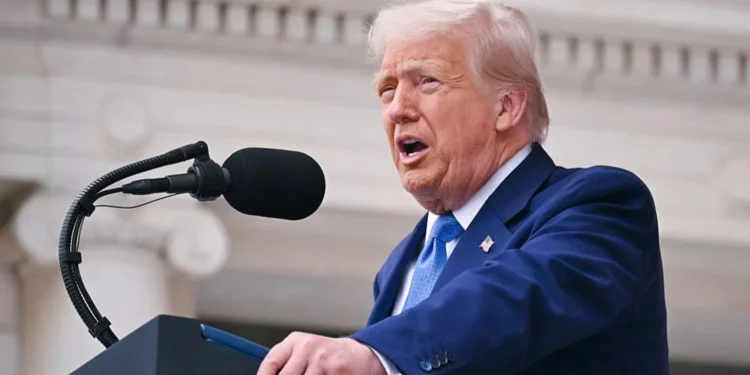The U.S. Supreme Court has ruled in favor of the Trump administration, allowing it to temporarily revoke legal status for over 500,000 migrants currently residing in the United States.
The ruling halts a lower court’s injunction that had blocked the administration from ending the CHNV humanitarian parole program—a policy initiated under former President Joe Biden.
The program offered temporary legal status to migrants fleeing economic and political instability in countries such as Cuba, Haiti, Nicaragua, and Venezuela.
With the Supreme Court’s decision, approximately 530,000 migrants now face the risk of deportation.
Justices Ketanji Brown Jackson and Sonia Sotomayor dissented from the majority opinion. In her dissent, Justice Jackson wrote that the court’s decision would “have the lives of half a million migrants unravel all around us before the courts decide their legal claims.”
The CHNV parole program allows qualifying migrants to live and work in the U.S. for up to two years under provisions citing “urgent humanitarian reasons or significant public benefit,” according to the Department of Homeland Security.
The Trump administration filed an emergency appeal to the Supreme Court after a federal judge in Massachusetts blocked its attempt to terminate the program.
That effort follows an executive order President Trump signed on his first day in office, directing DHS to dismantle existing parole programs. In March, DHS Secretary Kristi Noem formally announced the end of CHNV parole.
White House Deputy Chief of Staff Stephen Miller called the decision a victory, telling CNN, “The Supreme Court justly stepped in,” and claimed the administration “celebrated” the opportunity to deport what he referred to as 500,000 “invaders.”
Immigrants’ rights groups and individuals protected by the program have filed lawsuits against the administration, arguing that deportation would expose them to serious danger, persecution, or even death in their home countries.
This ruling comes shortly after the Supreme Court permitted Trump officials to terminate Temporary Protected Status (TPS) for approximately 350,000 Venezuelans—a separate program aimed at shielding migrants from deportation during times of crisis.
Humanitarian parole programs have historically provided refuge for those fleeing war and upheaval, including Cuban refugees in the 1960s. More recently, the Biden administration established a parole program in 2022 for Ukrainians displaced by Russia’s invasion.

































